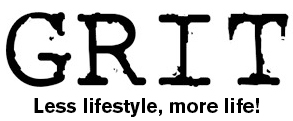

Editor
This month we are discussing the important topic of parenthood. Thank you to our contributors for sharing their views on parenting including what they believe are the biggest challenges for bringing up children today, whether they think there are different ‘rules’ for raising girls and boys and even coping with parental guilt.
If you would like to share what you believe is the most important advice to pass on to the next generation please send your article on ‘What should we tell our children? – Part 2’ (400-700 words) to grit@womenempowered.co.uk before 20th April 2018.
WE look forward to hearing from you.
Sunita Behl
Editor
Being a parent is one of life’s greatest gifts. And if there is any relationship that defines unconditional love, it’s being a mother. We are blessed with two loving boys, actually grown men now. I came across the quote “Give your child roots and then wings” when my boys were quite young and it became my motto for raising them.
To me ‘roots’ emphasized family values and bonding. Once we teach our children good values, they remain grounded while facing various situations and adversities in life. Compassion, integrity, responsibility, self-reliance, gratitude, respect for nature and dignity are not mere words. They are the essence of raising good human beings.
The small age gap between my boys had its challenges but mostly it was great fun. They learnt everything together and had constant companionship. Both had different interests and that added more variety. Being a working mother, I made a conscious effort to spend a lot of time with them, sometimes being over-indulgent, but every minute was worthwhile. I also encouraged time with grandparents and extended family as I believed this was of equal importance.
To my mind there is no difference between boys and girls in terms of upbringing. Both should be taught everything in a home and to do it with pride. Both must have access to equal education and be given equal opportunities. In fact all mothers must teach their sons to respect girls and not treat them as the weaker sex. Our children must be taught to stand up for what is right and not be bullied nor give in to peer pressure. The term ‘boys don’t cry’ is something I do not agree with. Boys must be able to express their emotions and not grow up ‘locked in’ – this is of immense importance in raising sensitive men.
Connecting with nature and animals teaches children respect and compassion for all living things. We always had pets in the house. Growing up with animals – be it a dog, cat, squirrel, guinea pigs, birds etc. teaches children to love, nurture and be responsible. These qualities help them in the way they deal with others in life too.
Young people today are exposed to so much social media and information which has a huge impact on their minds. Technology has brought several advances but also has a downside. Children can be exposed to dangerous or inappropriate material which is worrisome for parents. This is where discipline plays a major role but it is not easy. One has to win over your child’s confidence as no one else will guide them better. Some rules have to be set and open communication is required at every stage. Your child has to trust you and vice versa. Do not let them down if you have made a promise to them. They should be able to share their joys, fears, anxieties, dreams and what is important to them. Explain things to them rather than being a dictator. And never give in to tantrums. Instead encourage a healthy debate or argument and listen to their point of view.
Across every field today there is tremendous competition and children are under so much pressure but everyone cannot win. Your child is unique so don’t ape others or follow a trend if it is not right for them. Our job as a parent is to understand our child’s limitations and hone their talents. If they find their passion, and ideally make a career of it, work will seem effortless and rewarding. Allow them to blossom as individuals and not be a part of the herd. Children emulate what they see so be a role model by example and not just preach. Also both parents must be in sync and not disagree on important issues as this just confuses them.
Coming back to the quote on roots and wings, I strongly believe that if the roots are strong life is easier and one faces life’s challenges better. When children grow into young adults, it’s time for them to fly the nest. This is when they need large and strong wings to venture ahead to realize their dreams. As parents we need to support their flight by taking a back seat. Now we need to detach ourselves. Don’t hang on to them for your sake – let them be free. Help them go ahead and they will remain close to you. It is easy to get swayed in the material world. Guide them with your experience but respect their decisions – they have to learn from their own mistakes. Some spirituality doesn’t hurt but makes them stronger. Show them the way.
Love, nurture and let go…
It was only 10:15am on Monday morning and I had already felt guilty more than 15 times! I had let my son fuss for a few minutes while I skimmed the Financial Times. I had let him observe pages in a “non-educational” Thomas the Tank Engine book while I prepared breakfast. I had spent 10 minutes responding to emails without speaking to him in “parentese” (Parentese or baby talk is apparently one of the four ways to nurture more intelligent kids!) I had not stimulated him enough, the additional berries in the homemade granola weren’t as finely chopped as they should be …my parental guilt list went on… and on… and on.
The problem is we live in an “all-in” culture. If we choose to work, we are expected to be the most dedicated employee and give 100% of ourselves to our jobs. And if we choose to stay at home, we are expected to be Super Mums who give 100% of ourselves to our children. But it’s unrealistic for anyone to spend 100% of their potential on any one activity. And if we do, inevitably, there will not be much substance or quality. Moreover, is giving all of ourselves to our children the best way to raise them?
My grandfather worked long hours to provide for his family and did not get home until 10pm every night while my grandmother cared for 8 children and a house. She certainly didn’t have time to fret over hand-made beaded school costumes. Do you think either of them felt guilty about this? Absolutely not. If anything, they felt proud that they were able to successfully build a life for their children. And they were not alone.
Many of my close and successful friends recall childhoods where their parents seemed eternally busy with work and chores. There was little time for coddling and some school functions were inevitably missed. Our parents did not feel guilty or try to make this up to us. Rather than feeling slighted by this, it seems we all felt indebted to the sacrifices our parents had made to ensure our future was brighter than their own.
So why did our parents not feel this same sense of guilt, or at least not to the same degree, that we seem to today? It seems guilt is primed into our generation of parents. Many women claim that their biggest guilt factor is leaving children at home, nursery or with a nanny in order to work. For men the pressure to be more involved and present as fathers also leads to feelings of guilt. With the common trend of working longer hours, guilt seems to be an inescapable side-effect – for both men and women.
Feeling guilty is beneficial to the extent it makes us feel closer to other people and encourages us to improve our relationships and ourselves. But guilt should motivate not demoralize us. When guilt bleeds into shame and makes us feel inadequate, or drives us to give up who we are to fit in with culture, trends, or other people’s expectations, then it has gone too far and no longer serves its social function.
We have made strides in our lives, compared to our parents’ generation, and are able to offer our children much more. Yet are we truly preparing them for the future if we give up who we are? I love my son more than anything in the world, and if I had to, I would give up anything for him. But am I doing him any favours by giving up who I am? By ceasing to exist as an individual with an identity unrelated to my mummy one, how can I give my son an example to look up to, admire, and emulate?
Instead of feeling guilty for doing things for ourselves, for not being all-in all the time in all that we do, we should feel proud that there is more to us than a single identity or label. The better rounded we are, the more we have to offer each sphere of our lives — from work to home.
Rather than lamenting a culture that wants us all-in all the time, we can choose to change it by starting with ourselves. We can stop feeling guilty about or apologizing for not giving 100% to everyone and everything — for not being “super-human.” In so doing, we prepare our children to more easily navigate life, enjoy it, and become better adults themselves one day. Guilt-free.
Terrorism, Technology and Trump
I have two daughters and often dwell on today’s parenting challenges and how different they are to those faced by my parent’s generation.
My parents moved from India to the UK in the early 70’s and faced the huge challenge of no family support and yet they ‘managed’. They built a fantastic haven of support with like-minded people, ensured we would not endure the same struggle they faced, they sacrificed and succeeded in bringing up three strong and independent-minded children. There was definitely no rule-book for the first generation Indians who came to the UK. My sister and I did have different rules to our brother but the one thing they instilled in all of us was confidence and pride. They involved us in big decisions and gave us a sense of autonomy.
Today, my personal struggle is a lack of social support for my children. Their school is a 20 minute drive away from home, so unlike when we were growing up, they have no local friends to play with across the street until sunset. Instead today hovering parents control their children’s time with endless ‘activities’. The carefree childhood we had, has now been accelerated into learning about the ‘new world’; women empowerment, LGBT choices, terrorism, technology and Trump! We have to be ahead of the game in how we explain this world to our children whilst rapidly dealing with it all internally ourselves too.
I work full-time and have days where I feel guilty about not doing the school run and being there to hear about my children’s day when excitement is high. Instead I return to replies of ‘good’ and ‘fine’ when tucking them in for the night. However I have noticed that the majority of parents at the side-lines of netball matches these days are actually fathers. In today’s world many families are dual-income and balance parenting together rather than it all falling onto the mother alone. In my children’s classes, the mothers are surgeons, soldiers, Paralympic GB trainers, airline pilots, pharmacists and self-made business women. That’s an inspiring line up for both boys and girls.
I asked my girls whether they felt girls and boys are brought up differently today. They said that some parents make their girls too ‘girly’ and that boys are allowed to go outside more and do more rough play. They weren’t accusing me, and I think there is no right or wrong way to parent. As a parent, you can only teach what you’ve been taught. And if you’re not still learning every day as a parent, your child will stall in the past.
I tell my children, that just because someone is an adult, it doesn’t mean they are right. They need to learn and decide for themselves and to be open to every possibility until they’ve decided. I want them to want to work hard and to continue to move with the times at the same time, staying young for as long as possible. The age old values of not tolerating bullies and hugely tolerating family stand. If schools can do one thing right, it’s to breakdown the divide between girls and boys sports so they learn on a level playing field. It has to start young, as we all know changing ideas as you get older can be hard.
I want my girls to know about important landmark movements of our time, such as the slave trade, apartheid, the Suffragettes, terrorism etc. Not to make them afraid, but to make the see how much things have changed and to open their eyes further to how much more needs to happen. I hope they care about something so much; they want to do something about it to make it better. That having goals is important in order to visualize their path.
Being a parent, and an over-thinker, I don’t feel there is much more we can do to empower our children. I hope to be as open a parent that my children feel they can discuss anything with me -life doesn’t have to be as dramatic as an 80’s Bollywood movie. Oh and did I forget to teach them to laugh out loud and enjoy life?!
Please visit my blog at www.askanushka.co.uk
Parenting is not something that is taught through academia but a self-taught lesson to all of us who decide to embark on this no manual, no instructions, no trials, and no second chances journey.
Parenting has changed fundamentally in all aspects compared to when I was growing up. The rise of technology and availability of a wide spectrum of information means that the information we inherited and accumulated to pass down to our children such as respect, positive cultural understanding, education and general life lessons are forever being challenged.
I for one am constantly being inadvertently quizzed by my little dictators on every area of life. I have come to realise that the challenge I’m facing is our parent-child relationship. How can I learn to understand my child better and not to be a control freak when they decide to fundamentally go against my ingrained beliefs, thoughts and ideas?
Being raised within an Indian family, I was not allowed to question my parent’s ‘ideology’. I was taught to respect my elders, not talk back or argue, get an education, like my life depended on it, and a one way path to university. Now I am being challenged on whether this was a good parenting tactic?
At first I thought that this was the only way, but I have come to realise that children growing up today need more. The pressures of social media and ideology of wealth, money, and status has made parenting even more difficult. As parents we now have to think more about our child’s emotional development, and ensure better communication and support are in place for our children.
I am often told by other parents how ‘emotionally sensitive’ they find their children compared to when they were growing up. Many shrug their shoulders as they say today’s ‘parenting’ is all about developing resilience as well as confidence and self-awareness. However this definition of ‘parenting’ is not the parenting we grew up with.
This is a deviation from the norm and despite us having a ‘Western’ sense of upbringing a lot of us still carry the cultural traits of wanting the same drive and success our parents wanted for us. However after meeting many parents it is apparent that children today not only need motivation, support and drive but also emotional and psychological support to deal with the adversities and increasingly competitive nature of modern society.
The increasing isolation between people due to technological advances means we also have to teach our children about how to survive in an independent world. Does this apply to both girls and boys? Yes absolutely. Gender is no longer the factor here, technology is. Children now build relationships through technology, not via face to face interactions. Thus parents have become the fundamental educators. Our battle against what they learn from social media and other technological platforms versus traditional upbringing is just the beginning.
So what should our parenting strategies be now? We need to engage with our children more often. Tell them to make small goals that lead to big goals, work hard and educate one-self, support a growth mind-set and mental wellbeing. Have a passion and turn it into a career, don’t compare yourself to others, and certainly not your siblings! Keep active and eat healthy foods. Teach them to be themselves and always strive to be better than they were yesterday. Lastly support children and install confidence by simply understanding their needs, rather your needs for them.
Do you want to write for GRIT?
Each article needs to be submitted to grit@womenempowered.co.uk on the 20th of the preceding month (eg an article for June should be submitted by 20th May). The newsletter will go out on the 5th of each month to our subscribers and will be uploaded on our website and our social media will direct to it.
All submissions should be between 400-700 words. They can be written in the first person where appropriate. They will be edited for content to ensure suitability. Please ensure they are verified with source if it contains factual content. If the topic is personal then please ensure that you have been mindful of others where appropriate and ensure your account is as accurate as possible. Articles submitted will be chosen at the discretion of the editor. Please also be sure to include a photo and your name as you would like to be credited (title / position etc if applicable)
2018 GRIT Topics
MAY – WE event
Don’t miss this month’s WE speaker event. More details to follow.
JUNE GRIT – Health Awareness
Can you help raise awareness of any medical condition? Has your life been touched by a major illness such as cancer, diabetes, heart disease or mental health? Please share your story, or health-related advice, so others can benefit from your experience.
JULY/AUG – SUMMER SPECIAL GRIT – Business know-how
Read our business advice, tips and success stories from our WE community.
SEPTEMBER GRIT – The world in which we live
What is your passion? Do you champion the homeless, care for the environment, teach or share skills to help benefit others? Are you involved in a charity, your local community or politics? Tell us how the world in which you live has shaped the person you have become and why you became involved in whatever cause you feel passionate about.
OCTOBER – WE event
Don’t miss this month’s WE speaker event. More details to follow.
NOVEMBER GRIT – No-one ever talks about…
Please share your views and thoughts on any topic which you feel is not discussed often enough and that you would like to raise awareness of.
DECEMBER GRIT – Looking back on 2018
A review of our highlights over the past 12 months featuring our most popular 2018 contributors.
WE needs YOU!
Thank you.
Disclaimer: Women Empowered is a wholly social initiative run by volunteers which aims to empower women to make the best of their individual skills and talents and help them to achieve whatever personal and professional goals they may have. We work at a grass roots level, trying to ensure we are easily accessible to all who would like to reach us.
GRIT is a place for the Women Empowered community to share their life experiences. Articles in GRIT represent the views of their authors and do not represent the views of Women Empowered.
To the extent permissible by law, Women Empowered assumes no responsibility for information published in GRIT and disclaims all liability in respect of such information.
Women Empowered is not liable for any injury and/or damage to persons or property as a result of any actual or alleged libellous statements, infringements of intellectual property or privacy rights, whether resulting from negligence or otherwise.
Women Empowered does not warrant that the information published in GRIT is accurate or free from error. Information published in GRIT is intended solely for the purpose of providing general information and/or opinion.
You agree to accept the application of English law to govern matters between Women Empowered and yourself




